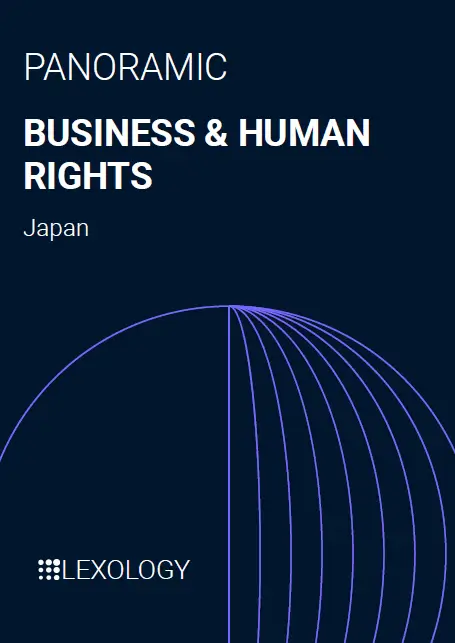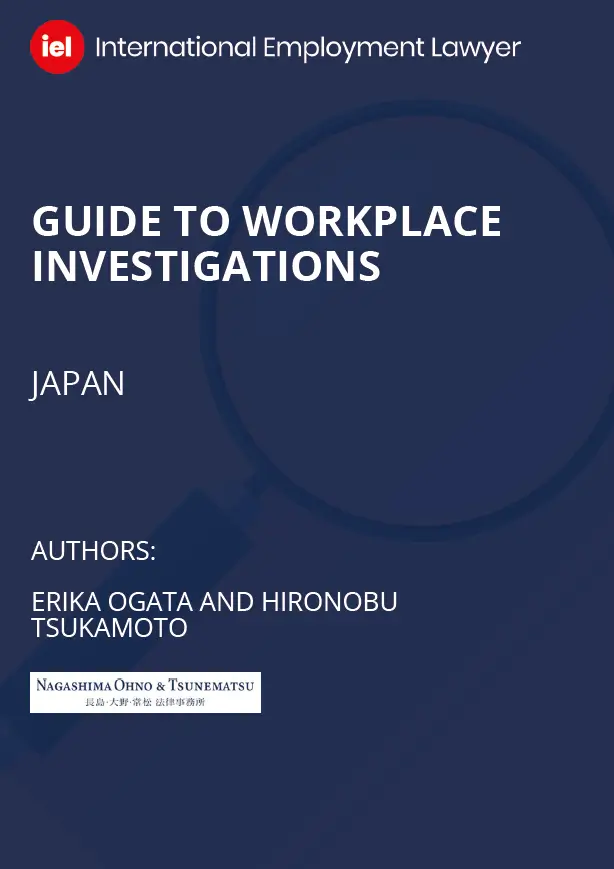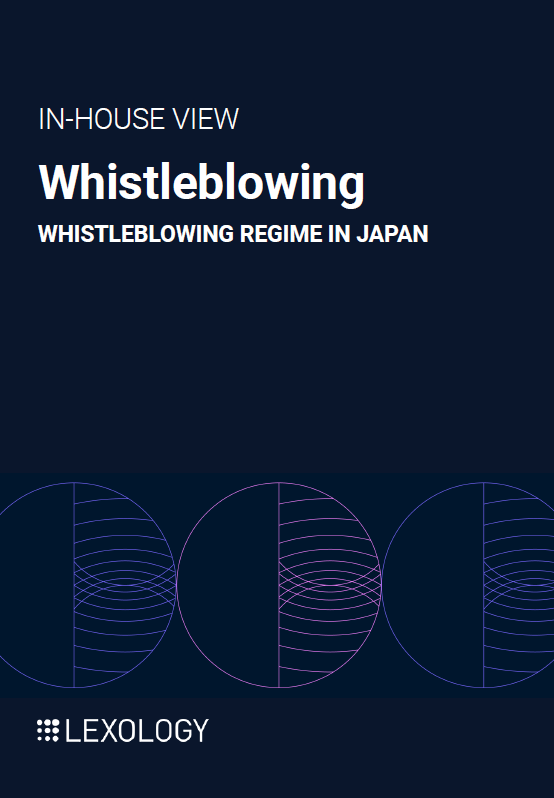
NO&T Thailand Legal Update
The main regulation regarding anti-money laundering in Thailand is the Anti-Money Laundering Act of 1999 (the “AMLA”) which has been effective since 19 August 1999. The Anti-Money Laundering Office (the “AMLO”) was also established upon the enactment of the AMLA as a state agency in charge of enforcing the AMLA and anti-terrorism funding regulations, as well as reviewing the regulatory standards thereof. In this regard, the AMLA has undergone several amendments over the years.
The AMLO first published the draft amendment to the AMLA (the “Draft Amendment”) in 2019 and also conducted a public hearing and gathered opinions from authorities relating to anti-money laundering regulation such as the Bank of Thailand and the Securities and Exchange Commission. According to the background of the Draft Amendment published by the AMLO, the objective of this amendment is to reflect the recommendation given to the Kingdom of Thailand by the Financial Action Task Force (on Money Laundering) (the “FATF”). The evaluation of Thailand’s money laundering regulations by the FATF in December 2017 found that many aspects of the current the AMLA do not conform with the standards recommended by the FATF, e.g., (i) the existence of a gap between existing predicate offenses, (ii) risks posed by foreign trusts operating in the Thai economy, and (iii) non-inclusion of lawyers or accountants in the anti-money laundering and counter-terrorist financing measures. Such recommendation by the FATF prompted the AMLO to propose the Draft Amendment in order to follow up with the international standards.
The Draft Amendment introduces numerous revisions to the AMLA, ranging from substantive provisions, such as provisions concerning predicate offenses and reporting duties, to procedural provisions such as the authority of officers concerning seizure of illegal assets, and the like. In this article, we summarize several important amendments which may impact the private sector as follows:
Under Section 5 of the AMLA, any person who transfers, accepts a transfer of or converts an “asset connected with an offense” for the purpose of obscuring or concealing the origin of that asset or acts in any manner whatsoever for the purpose of concealing or disguising the true nature of an asset, shall be deemed to have committed money laundering and is punishable (with respect to a natural person) by imprisonment for a term of one (1) to ten (10) years or to a fine of THB 20,000 to THB 200,000 or both, or a fine of THB 200,000 to THB 1,000,000 (with respect to a juristic person). Assets connected with an offense can also be subjected to seizure by order of the court under the petition by the AMLO and state attorney under Section 49.
In this regard, the “asset connected with an offense” which is the basis for criminal sanction and seizure shall mean money or assets obtained from the act of the predicate offense or money laundering offense, as well as money, assets or fruits generated by the said offences. Predicate offences are stipulated under the AMLA and other special laws, for example, certain tax offences stipulated in the Revenue Code*1. In addition to the existing predicate offences, the Draft Amendment, among other things, contemplates the inclusion of the followings as new predicate offences:
It is noteworthy that the Draft Amendment also includes, among the predicate offences, offences relating to the law concerning digital assets. This addition reflects the relatively recent enactment of legislation in Thailand concerning digital assets, i.e., the 2018 Emergency Decree on Digital Asset Business. Furthermore, the Draft Amendment also adds offences relating to conspiring between bidders in government bidding. This amendment is in addition to offences relating to corruption by state officials, which is already a predicate offence under the AMLA.
Under the AMLA, businesses operators which are engaged in professions stipulated under Section 16 (collectively, the “Professions”) have the duty to report to the AMLO any transaction which is (i) in cash and in an amount greater than stipulated by the AMLO; or (ii) any suspicious transaction which may be connected to money laundering or predicate offences. The Draft Amendment updates the Professions to include the followings:
It must be noted that the legal and accounting professions, which are subject to the reporting duty under Section 16 of the Draft Amendment, must be operations in the form of juristic persons only. Lawyers or accountants with their own practice are not deemed to be among the “Professions” under the Draft Amendment unless specially designated by the AMLO. In addition, the abovementioned legal and accounting professions must report only suspicious transactions.
Under the Draft Amendment, the following non-bank financial business operators will be added to the definition of “financial institutions”:
Under the AMLA, the above businesses are included as one of the “Professions” which have the reporting duty under Section 16 as mentioned above. Pursuant to the revision, such business operators will be treated as “financial institutions” under the AMLA, and consequently, they shall have the duty to report any transaction which falls under Section 13 to the AMLO in the same manner as financial institutions, i.e., (i) any transaction which is in cash and exceeds the threshold prescribed in the Ministerial Regulation issued under the AMLA, (ii) any transaction connected with an asset worth more than the value prescribed in the said Ministerial Regulation or (iii) any suspicious transaction whether or not it is of the kind stated in (i) or (ii). Moreover, service providers in respect of personal loans or credit cards will be required to perform other duties under the AMLA, such as customer identification or due diligence (as discussed below) at the same level as financial institutions.
Under Section 20 of the AMLA, financial institutions and the Professions shall require customers to identify themselves before conducting any transaction. Regarding the KYC measures, Section 20/1 of the AMLA requires financial institutions and those, among the Professions, that concern investment advisors under the security exchanges laws and non-bank electronic money card operators to have a policy concerning money laundering risk and to conduct customer due diligence. On the other hand, KYC measures for Professions other than the aforementioned shall follow the stipulation by the ministerial regulation issued under the AMLA, provided that such regulation shall not cause inconvenience to minor business operators and the public and shall be for the purpose of money laundering prevention only (Section 20/1 paragraph 3).
The same concept of duty to conduct customer identification and KYC continues in the Draft Amendment but by way of revised wording. By the revised wording in the Draft Amendment, there is no longer any differentiation between the duty to carry out customer identification and KYC between financial institutions and the Professions, i.e., financial institutions and all the Professions must perform the customer identification and KYC. Furthermore, the Draft Amendment removes the leniency on minor business operators that exists by virtue of the present Section 20/1 paragraph 3. In this regard, a sub-regulation will be issued to stipulate the details of the duty to document customer identification and that of KYC.
Considering that the AMLA stipulates the duty of the Professions and of financial institutions to conduct KYC and other measures to prevent money laundering risk according to different layers depending on the exposure to money laundering in each business, it can be expected that the level of duty to comply under the Draft Amendment will follow in the same fashion, and the duties will vary based on the nature and characteristics of each profession.
Under Section 21 of the AMLA, financial institutions must record the details of transactions under Section 13 of the AMLA – i.e., transactions conducted in cash or relating to assets which are in an amount greater than stipulated by the AMLO, or any suspicious transactions which may be connected to money laundering or predicate offences.
According to the Draft Amendment, both financial institutions and the Professions shall have the duty to record the details of transactions which are above the amount designated by the AMLO for each case or which are suspicious transactions. The format, criteria and items pertaining to such records shall be further stipulated by sub-regulations.
Under the Draft Amendment, “financial institutions” and entities that are now included in the definition of “Professions” will need to be aware of the stricter obligations that they will need to comply with in the future. Predicate offenses, which are the basis of money laundering offences, will also include a wider range of illegal activities. At present, the Draft Amendment has passed the public hearing stage and has been proposed to the Cabinet for further consideration and approval. It can be expected to undergo further revision until its enactment, especially in light of the opinions to be provided by the legal and accounting professions, which will have an additional duty to report suspicious transactions and record such details under the Draft Amendment. Moreover, it can be anticipated that the AMLO will hold discussions with the relevant council of each profession before issuing sub-regulations setting the appropriate level of duty for each profession. We will closely monitor the status and keep our readers updated on the progress of this matter.
*1
Act on the Amendment of the Revenue Code (No. 45) of 2017 dated 30 March 2017
This newsletter is given as general information for reference purposes only and therefore does not constitute our firm’s legal advice. Any opinion stated in this newsletter is a personal view of the author(s) and not our firm’s official view. For any specific matter or legal issue, please do not rely on this newsletter but make sure to consult a legal adviser. We would be delighted to answer your questions, if any.


(April 2025)
Ayumi Fukuhara, Momoko Yamashita, Nina Newcombe (Co-author)


(January 2025)
Hironobu Tsukamoto, Eriko Ogata (Co-author)


Yothin Intaraprasong, Waritpan Titatornwattanasiri, Yanisa Wiboonthan (Co-author)


(September 2024)
Daisuke Fukamizu, Kosuke Gunji (Co-author)


Justin Ee, Kennosuke Muro (Co-author)


Patricia O. Ko


Ngoc Hoang


Yuan Yao Lee


Justin Ee, Kennosuke Muro (Co-author)


Patricia O. Ko


Ngoc Hoang


Yuan Yao Lee


Chattong Sunthorn-opas, Thunsinee Sungmongkol (Co-author)


Yothin Intaraprasong, Yosuke Konno, Naruenad Charoenpakdee (Co-author)


Poonyisa Sornchangwat, Kwanchanok Jantakram (Co-author)


Yothin Intaraprasong, Chattong Sunthorn-opas, Thunsinee Sungmongkol (Co-author)